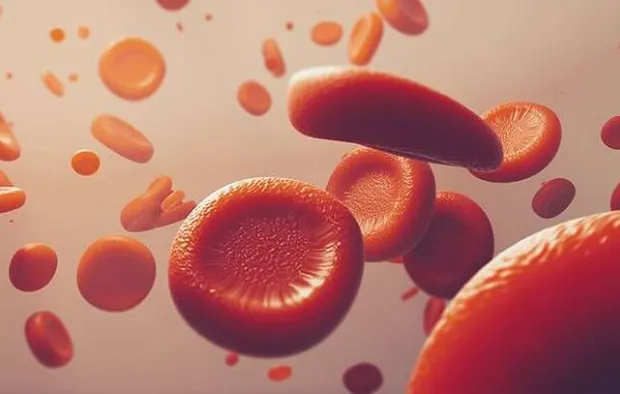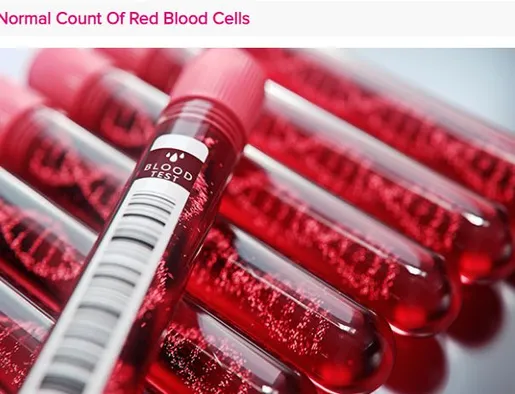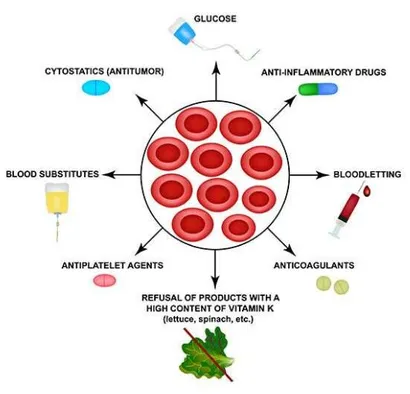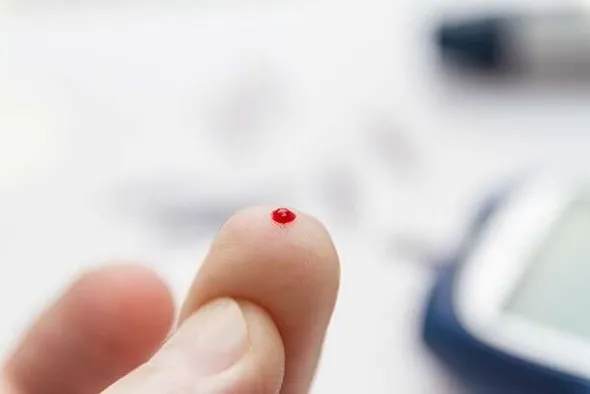Your cells need oxygen to grow, reproduce and stay healthy. An RBC count that is higher or lower than normal is often the first sign of an illness. So the test may allow you to get treatment even before you have symptoms.
A red blood cell (RBC) count measures the number of red blood cells, also known as erythrocytes, in your blood. Red blood cells carry oxygen from your lungs to every cell in your body.
What is it used for?

The RBC measurement is used to help diagnose red blood cell disorders, such as anemia, a condition in which your body does not make enough healthy red blood cells. A red blood cell (RBC) count is almost always part of a complete blood count, a group of tests that measure many different parts and features of your blood.
Normal Ranges
The “normal” or “reference” range can sometimes vary depending on whose blood is being tested. If you live in a high-altitude city like Denver, your blood count will be far higher than people who live in low-altitude areas like the Gulf Coast.
This is because when you are at a higher altitude, your body creates more red blood cells so that more oxygen can be carried to your tissues. For this reason, the ranges cannot be considered hard-and-fast values but just a reference point.
An RBC count is the number of red blood cells per a particular volume of blood. It may be reported in millions of cells per microliter (mcL) of blood or in trillions of cells per liter (L) of blood.

The RBC count reference range varies by sex and age:
Women: 4.2 to 5.4 million/mcL
Men: 4.7 to 6.1 million/mcL
Children: 4.1 to 5.5 million/mcL
High RBC Count Causes
A high RBC count tells us that there has been an increase in oxygen-carrying cells in the blood. In some cases, this may reveal that the body is trying to make up for some condition that is preventing the body from receiving enough oxygen. In others, the cause may be related to diseases or drugs that increase the production of RBCs.
Causes
High red blood cell count may be caused by low oxygen levels, kidney disease, or other problems.

Performance-enhancing drugs
Certain drugs stimulate the production of red blood cells, including:
- Anabolic steroids
- Blood doping (transfusion)
- Injections of a protein (erythropoietin) that enhances RBC
Low oxygen levels
- Your body may increase red blood cell production to compensate for any condition that results in low oxygen levels, including:
- Heart disease (such as congenital heart disease in adults)
- Heart failure
- COPD (chronic obstructive pulmonary disease) exacerbation — worsening of symptoms
- Pulmonary fibrosis (scarred and damaged lungs)
- A condition present at birth that reduces the oxygen-carrying capacity of red blood cells (hemoglobinopathy)
- High altitudes
- Other lung diseases
- Sleep apnea
- Nicotine dependence
Increased red blood cell concentration
Dehydration (If the liquid component of the blood (plasma) is decreased, as in dehydration, the red blood cell count increases. This is due to the red blood cells becoming more concentrated. The actual number of red blood cells stays the same.)
Bone marrow overproduction
- Polycythemia vera
- Other myeloproliferative disorders
Kidney disease
Rarely, in some kidney cancers and sometimes after kidney transplants, the kidneys might produce too much erythropoietin. This enhances red blood cell production.

High RBC Count Treatment
If you have a high RBC count:
- Exercise to improve your heart and lung function.
- Avoid diuretics, including coffee and caffeinated drinks, which can dehydrate you.
- Stop smoking, especially if you have COPD or pulmonary fibrosis.
- Avoid the use of steroids, erythropoietin, and other performance-enhancing drugs.
- Eat less red meat and iron-rich foods.
- Avoid iron supplements.
- Keep yourself well hydrated.

